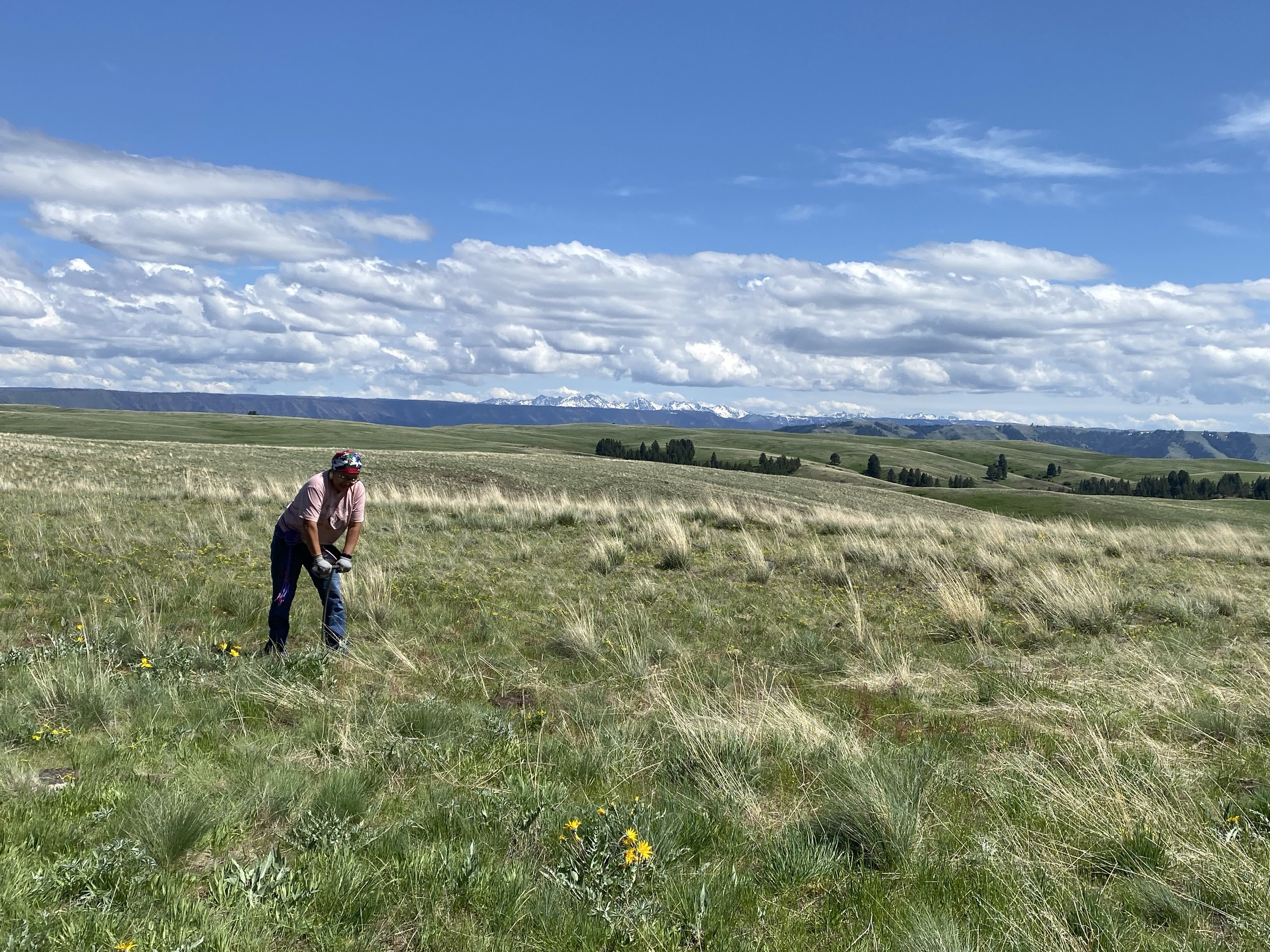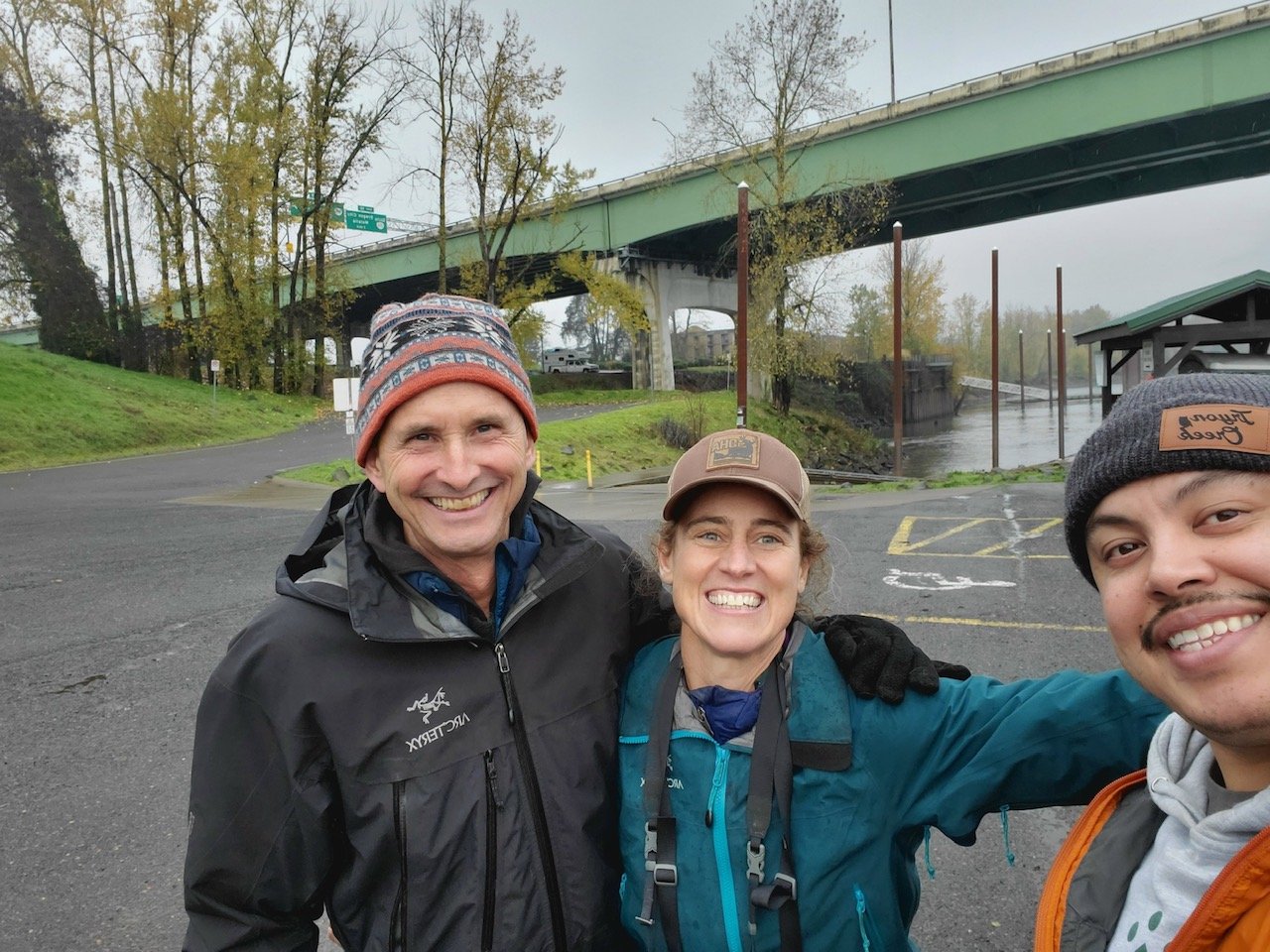
The Oregon Land Justice Project
Driving our vision through education, action, and service.
Our goals for the Oregon Land Justice Project encompass three categories: education, relationship building, and organizational change.
Education
-
📍Begin to understand Oregon’s rich tribal history and the ongoing impacts of settler colonialism
-
📍 Begin to understand how Indigenous lifeways and worldviews are related to land and water
📍 Support tribal communities in revitalizing their cultures and traditional lifeways through land access
-
📍 Understand how western conservation has excluded and harmed Indigenous peoples
📍 Understand that there is a fine line between paying respect and cultural appropriation
-
📍 Participate in an intentional space that brings in authentic and vulnerable discussion and mutual exploration between land trusts and tribes
📍 Share knowledge, resources, financial resources, relationships and assistance between land trusts
Relationship Building
-
📍 Be on the land together to create human-to-human experiences that build understanding and opportunities for trust
📍 Promote healing and reconciliation between the conservation and tribal communities
-
📍 Develop new relationships in order to co-create a conservation vision for Oregon
📍 Begin to understand the relational worldview and Indigenous cultures in order to more effectively communicate interculturally
📍 Develop equitable Indigenous engagement practices in line with the principles of Free, Prior and Informed Consent
-
📍 Ask ourselves: where can greater collaboration take us?
📍 Begin collaborating on projects that advance Indigenous goals and priorities for the health of the land and their communities
Organizational Change
-
📍 Build an organizational self-awareness in order to end colonizing paradigms
📍 Change our definition of success through supporting the success of others
📍 Explore ways to open doors to diversify leadership
📍 Shift from a mindset of scarcity to a mindset of abundance and share assets
📍 Codify land justice work in organization documents (mission, bylaws, dissolution language, etc.) and conservation and land acquisition strategies
-
📍 Listen to Indigenous people as they are the experts in their own needs and issues
📍 Practice ceding decision-making power to Indigenous people by stepping to the side and following their lead
-
📍 Build a comprehensive, practical tool box of resources and legal tools that can be used to increase Indigenous peoples’ ownership and access to land and water
📍 Develop a curriculum centered around Indigenous needs in order to lift the land trust community’s understanding to higher level
📍 Do legal research related to land access issues as requested by land trusts or tribes
-
📍 Actively share, buy and return land
📍 Pursue shared work that is important and transformational to us and, potentially, to others
📍 Share financial resources and help alleviate capacity problems for tribes to own or steward land
Our Programming
To best serve our mission, we develop programming that advances one or more of our goals.
The project is oriented on three phases of programming (so far!):
Phase 1 (2020-2022): Learning via the launch and completion of the Learning Journey
Phase 2 (2022-present): Action & Service via the launch of the Council and Indigenous Land Relationship Fund
Phase 3: Ceding Power via the creation of an Indigenous advisory team (launch TBD)
In addition, we also have several ongoing activities that supplement these initiatives.
The Learning Journey
The Learning Journey was a year-long education program intended to build up land trust staff and board members to be effective allies to Indigenous peoples. Its purpose was to provide participants with a foundational understanding of conservation-related issues that affect Indigenous peoples.
The Council
The Council is a group of land trust representatives who are actively using our collective resources to champion land justice.
The Council meets monthly to coordinate on land access projects in response to requests from our tribal partners.
Ongoing Activities
In order to bring the entire land trust community along in land justice work, we organize regular opportunities for continued learning and relationship building. These include:
Site visits to each of the nine tribes of Oregon in order to build relationships and engage in dialogue about their unique on-the-ground issues and needs
Trainings for land trusts to learn more about tribal partnerships
An annual gathering in October to bring together the Oregon Land Justice Project community
Legal and educational resource development to share with the public
Other Ways We Support Tribes and Land Trusts
The Indigenous Land Relationship Fund which funds Indigenous community-driven land access projects
Pro bono legal advice, expertise, and research
Information sharing and event promotion through our listserv
A land trust volunteer workforce for land trust or tribal events that support land access




